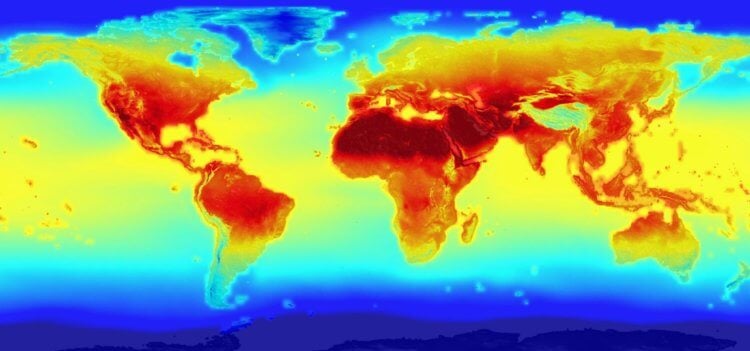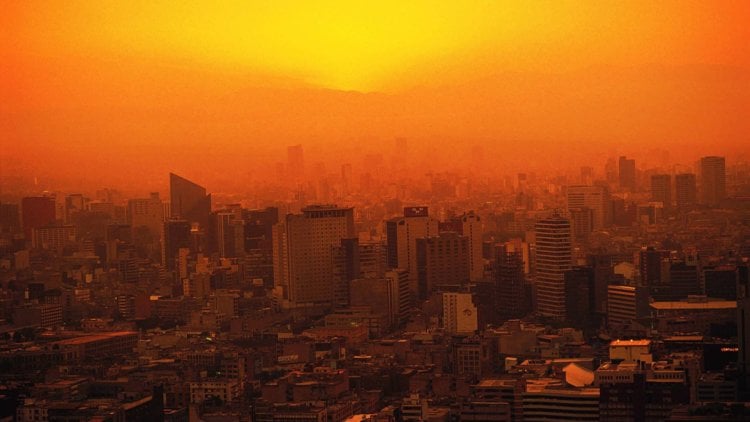While we rejoice at the imminent end of winter, climatologists are making accurate forecasts for the spring, summer and autumn of this year. Their verdict sounds depressing – 2024 will be very, very hot. So much so that it will break the record of the previous year, which, let us remind you, was the hottest on record. The European Union's Climate Change Service Copernicus (C3S) said heat waves could hit the planet: “As hot as it was last year, we expect the heat to get even worse in 2024.” Researchers note that the extreme weather conditions are caused by climate change and the El Niño thermal phenomenon. Thus, in Moscow, Tver, Kaluga and Kaliningrad, weather forecasters predict a rise in temperatures to +35 degrees. Temperature records are also possible in the Far East, the Caucasus, the Urals, Siberia and the Volga region.

Meteorologists warn that the summer of 2024 may become a record hot in Russia
The need to adapt to climate change and mitigate its consequences poses serious challenges to the global community, requiring concerted efforts at all levels – from local to international.
Contents
- 1 The hottest year in history
- 2 Climate in 2024 – scientists’ forecasts
- 3 What will summer 2024 be like in Russia
- 4 El -Nino – an unusual thermal phenomenon
The hottest year in history
2023 was one of the warmest years on record, causing serious concern among scientists, environmentalists and government organizations around the world. The main cause is believed to be the release of greenhouse gases into the atmosphere, such as carbon dioxide and methane, as a result of industrial activity, the burning of fossil fuels and the destruction of forest cover.
Climate models, as we have already described, predict that global warming will will intensify in the future due to the inertia of the system, as well as increasing emissions of greenhouse gases and other anthropogenic factors.

The average global temperature in 2023 was 14.98 degrees Celsius
More on the topic: Hell on Earth: Warming climate change can turn our planet into Venus
Among the causes of extreme weather events, climate phenomena called El Niño and La Niña, which have a serious impact on global temperatures, stand out. In 2023, the world saw the impact of one of these events, already exacerbating the existing warming trend.
Furthermore, last year many regions experienced record droughts, floods, wildfires and hurricanes in terms of duration and severity. These events may be associated with climate change and strengthening of atmospheric circulation systems.

Extremely high temperatures claim many lives every year
Every month in 2023 was warmer than the 1991-2020 average, and the second half of the year, after the onset of El Niño, broke records: June, July, August, September, October, November and December were the hottest months on record observations. July was the warmest month on record, and July 6 was the hottest day. September was so abnormally hot, climatologists say.
Experts are particularly concerned about extreme heat waves, the negative effects of which affect human health, ecosystems, agriculture and the economy. Another consequence of rising global temperatures is the extinction of a huge number of species, which threatens the global food chain.
Read even more interesting articles on our Yandex.Zen channel – articles that are not on the site are regularly published there!
Climate in 2024 – scientists’ forecasts
Despite 2023's record-breaking weather, many experts believe it could well rank among the coolest years in the future. This year is likely to be even warmer, largely due to El Niño. Climate change could lead to deteriorating living conditions for millions of people, population migration, conflicts over access to resources and increased social and economic problems.
2024 is highly likely will be in the top three if it doesn't set an absolute temperature record, says Emily Jay Becker, a climate scientist at the University of Miami.
Earlier in December, UK Met Office experts predicted that average global temperatures were likely to exceed 1.5 degrees Celsius in 2024, the internationally agreed target for limiting warming. This means that catastrophic floods, fires, heat waves and droughts will continue.

Meteorologists believe 2024 will likely be hotter than 2023
Don't miss: Get Ready for Summer Earth record sizzling heat will cover
Other scientists, however, are more conservative in their forecasts for this year. Michelle L’Here, an El Niño forecaster at NOAA, says El Niño could give way to La Niña in the spring and is bringing cooler temperatures to the Pacific Ocean.
What will summer 2024 look like? in Russia
«Izvestia» report that the coming summer could be the hottest in the history of weather observations. Russian experts came to this opinion after assessing the impact of the El Niño thermal phenomenon on the climate. According to weather forecasters, alreadyin June the temperature in Moscow will be 7 degrees Celsius above normal. Moreover, similar phenomena are expected all over the world.
In an interview with RBC, the scientific director of the Institute of Atmospheric Physics named after. A. M. Obukhov RAS Igor Mokhov said that more accurate forecasts can be made closer to April, but general trends can be traced today:
It all depends on how El Niño will move into another phase. And moreover, these are still probabilistic estimates depending on the phase transition, that is, options are possible. But there are risks, yes, says Mokhov.

Summer in Russia, by all appearances, will be hot
Let us recall that the El Niño effect is associated with temperature fluctuations in the surface layer of water in the equatorial part of the Pacific Ocean. It is under the influence of El Niño that each year becomes increasingly hotter, since there is a delay between the heating of water in the ocean and the increase in air temperature at the surface of the planet.
You may be interested: Antarctica will soon melt regardless of greenhouse gas emissions< /p>
El Niño – an unusual thermal phenomenon
Here's how Ulla Headey of the non-profit organization Worthy explains the effect: «If you pour cold water into a pan, you can feel only a slight change in the temperature in the pan – this effect is observed during La Niña, when cold water rises from the depths of the ocean to surface. However, if you stop adding cold water, the entire contents will heat up faster – this is the El Niño effect.

Early scientific research also found that extreme events between El Niños and La Niñas have increased by about 30% since 1960 compared with six decades earlier, with a third This is likely due to global warming.
Read also: September set a stunning temperature record – what's happening to the planet?
Moreover, the longer the influence of El Niño lasts, the warmer it becomes The Pacific Ocean and the air above it. And since the peak of this thermal phenomenon does not occur until months later, we are in for an extremely warm year. Previously, the World Meteorological Organization (WMO) confirmed that 2023 was the warmest year on record due to the thermal effect.